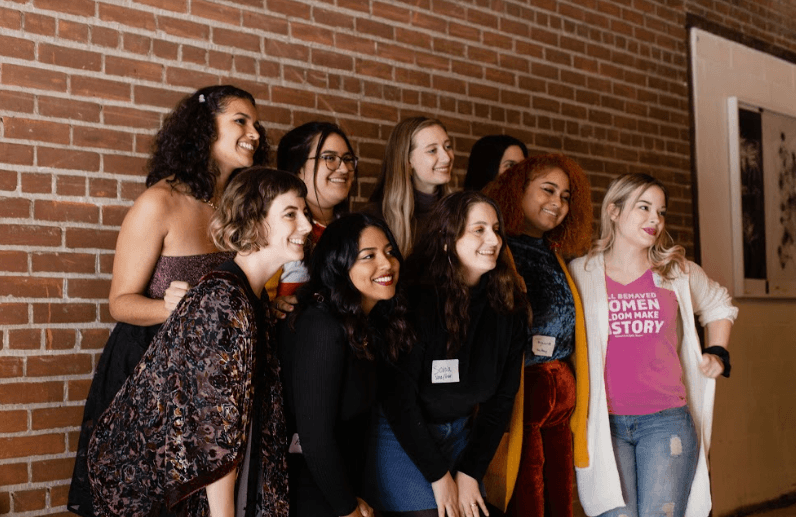
The values of human dignity, solidarity and justice are core to the work of Mary’s Pence. Since our founding, we have remained committed to amplifying women’s roles, voices, choices, and access to resources.
And yet, some people facing gender discrimination didn’t recognize a space for themselves within our mission. In our patriarchal culture, trans women and non-binary people face enormous social and economic hardships and risk of violence in their daily lives. And many are passionately working on issues of creating safe spaces, increasing cultural understanding, and fully participating in society.
As part of Mary’s Pence strategic planning work in 2018, we decided to be intentional about clarifying our role as allies of people facing diverse forms of gender discrimination. Recently we changed the language in our grants criteria to specifically include trans women and non-binary people.
For Grants Manager Robyn Browning the decision signifies the on-going dedication of Mary’s Pence to foster progressive social change. “This shift helps us to better recognize and resist unjust policies, structures, and systems that need to change in order for communities to flourish.” Robyn points to current Mary’s Pence grantees that do this through their work to promote justice for all.
Women for Political Change
Women for Political Change (WFPC), a Mary’s Pence grantee in Minneapolis, Minnesota, was founded by a group of University of Minnesota students to create a space for people of marginalized identities to learn about and become active in politics.
By investing in young people and creating alternative spaces for community education and healing, WFPC’s mission is to challenge systems of oppression and shift the face of power within public and political leadership.
“One of the first things we asked ourselves is: ‘How are we creating space for people who aren’t just women but for those whose struggles are aligned with ours?’” said WFPC Development Director Ana Mendoza Packham. “We did a lot of research and it
wasn’t easy. But the lesson we took away is that one of the best ways to stay grounded in community is to listen to your community.”
As a result, WFPC’s mssion now states: “We holistically invest in the leadership and political power of young women and trans & non-binary folks.”
Ana says that’s because they are all people who are part of the work WFPC wants to do and representative of the oppression WFPC wants to undo. “It feels right to accurately encompass the people with which we engage with most in our work. Diversification and inclusion of people are points of strength.”
The Womanist Working Collective
LaTierra Piphus is creator/manifestor of The Womanist Working Collective, which is “a social action and support collective for Black womyn (both cis & trans), femmes & gender non-conforming folks” in Philadelphia, Pennsylvania. LaTierra said their community, which received a Mary’s Pence grant in 2019, evaluated the inclusiveness of their work and cis privilege.
“Since our inception, The Womanist Working Collective has sought ways to communicate that our work is intentionally trans-affirming and we’re always willing to wrestle with this beast we call gender,” said LaTierra. “Our shifts in expanding our language occurred to better articulate who we stand, work and fight for. We believe that one’s self-determination is sacred and the ability to define ourselves for ourselves is inherently empowering. And since new language for gender develops everyday, we see our language constantly evolving as well.”
LaTierra is encouraged by funders who are intentionally having conversations around gender inclusive language and programming, and thinking about ways to be affirming and welcoming of all people. “Everyone grows when we’re trying to learn how to be better together.”
